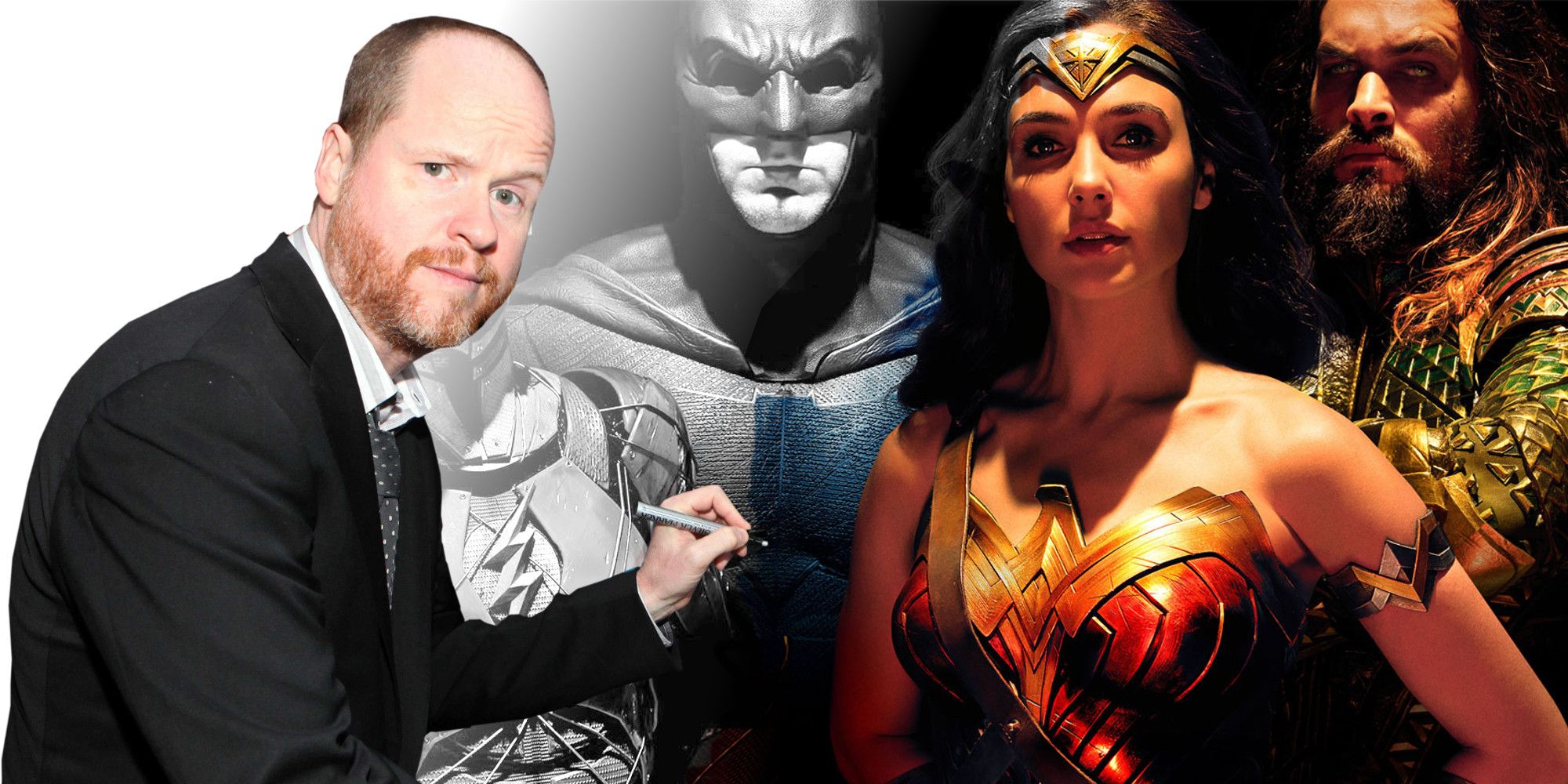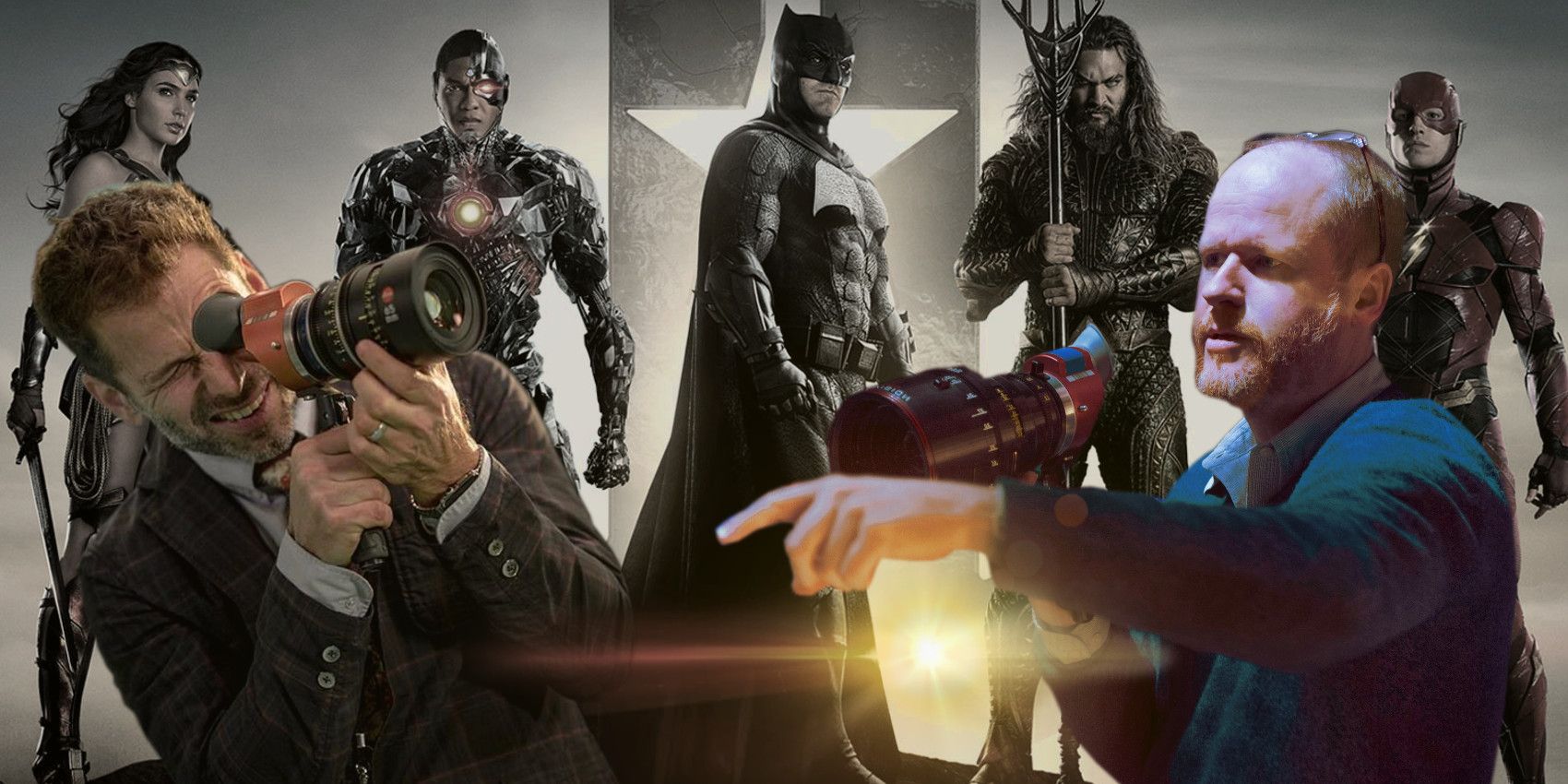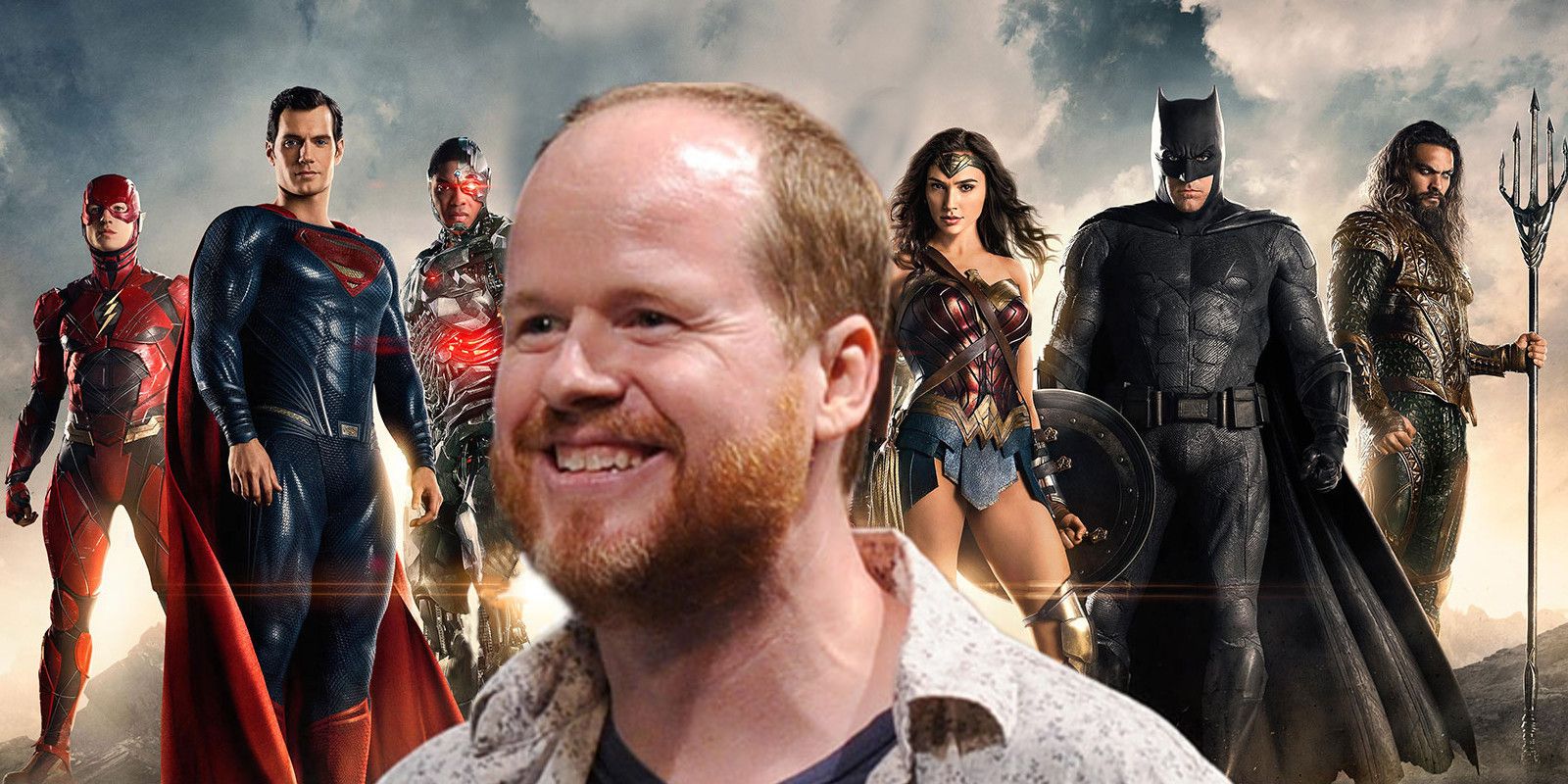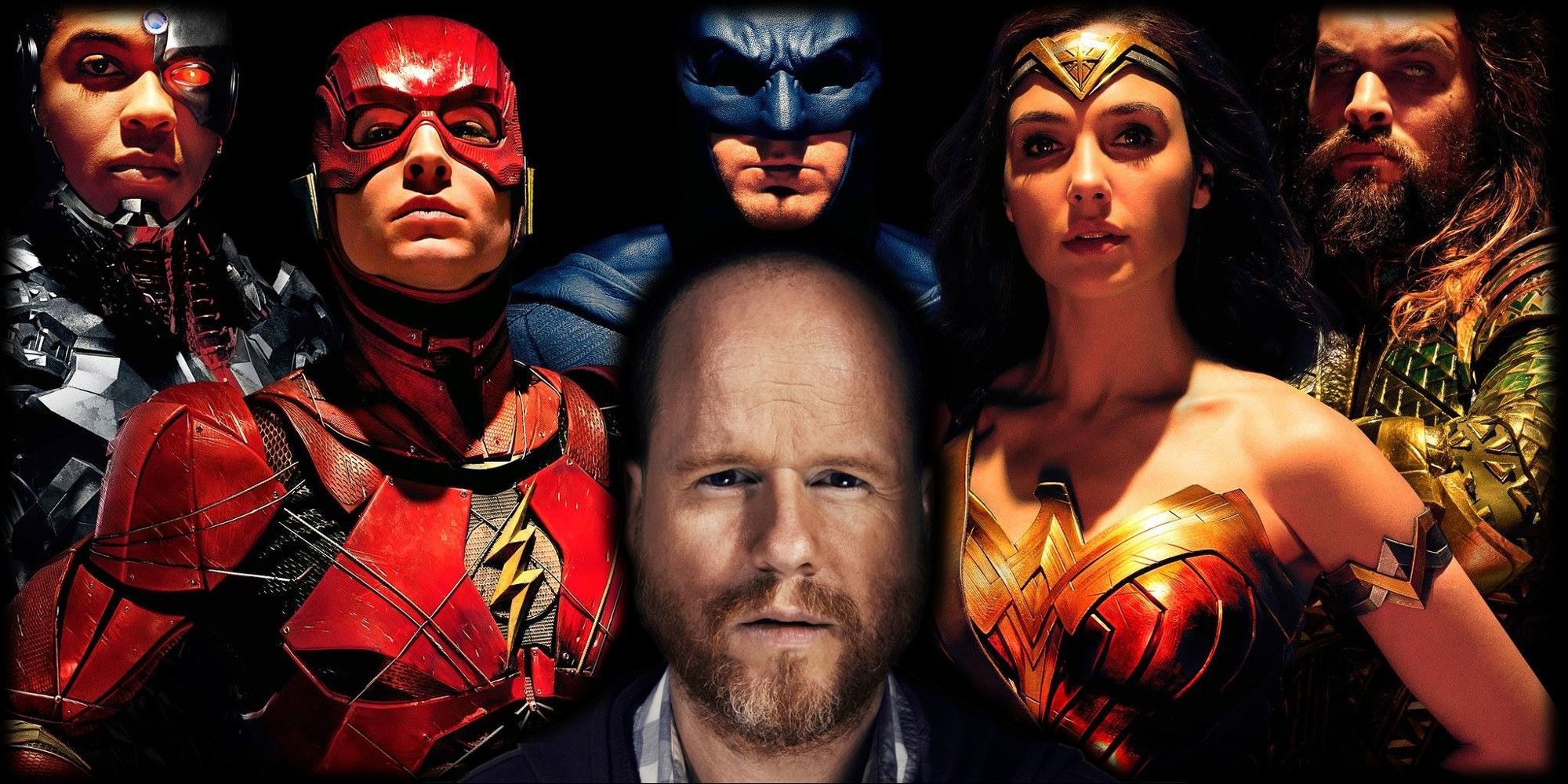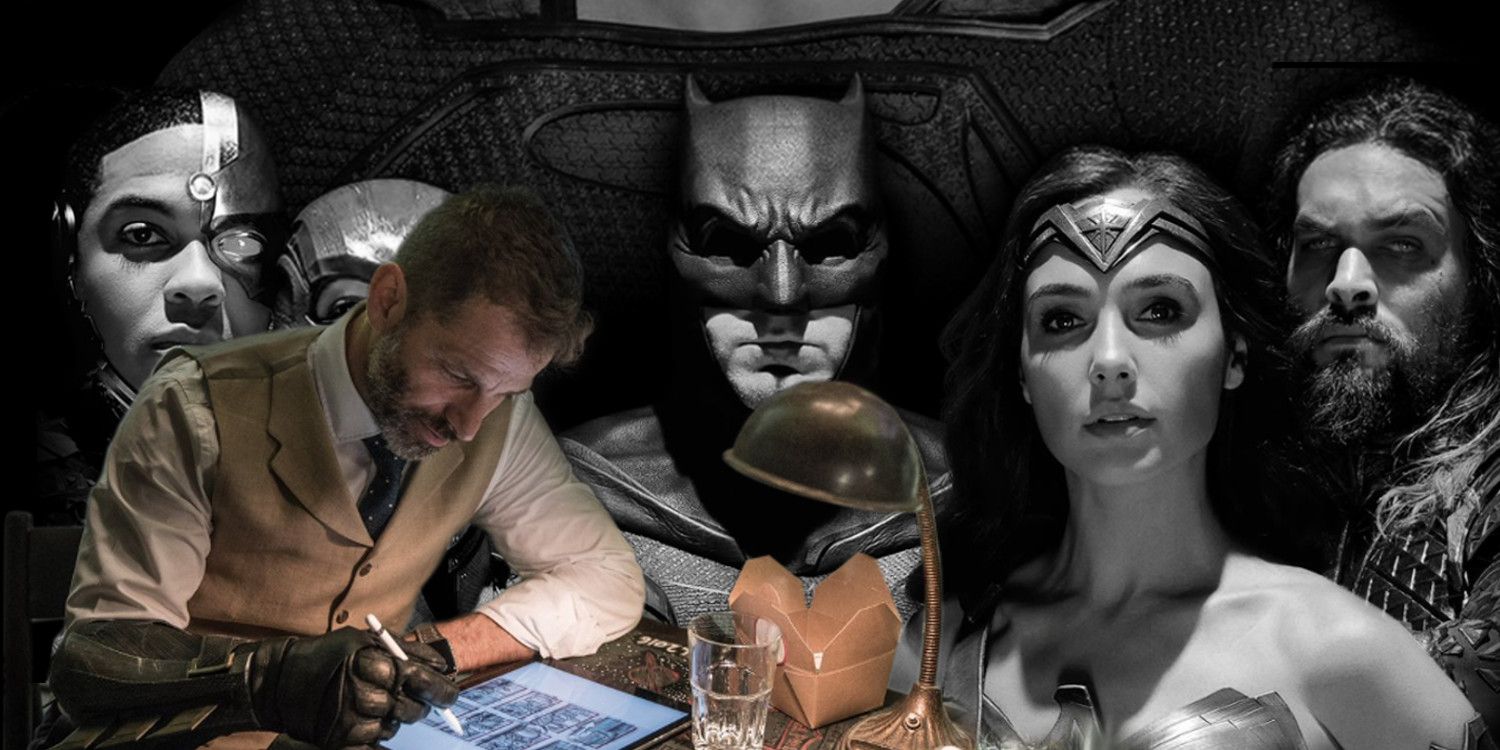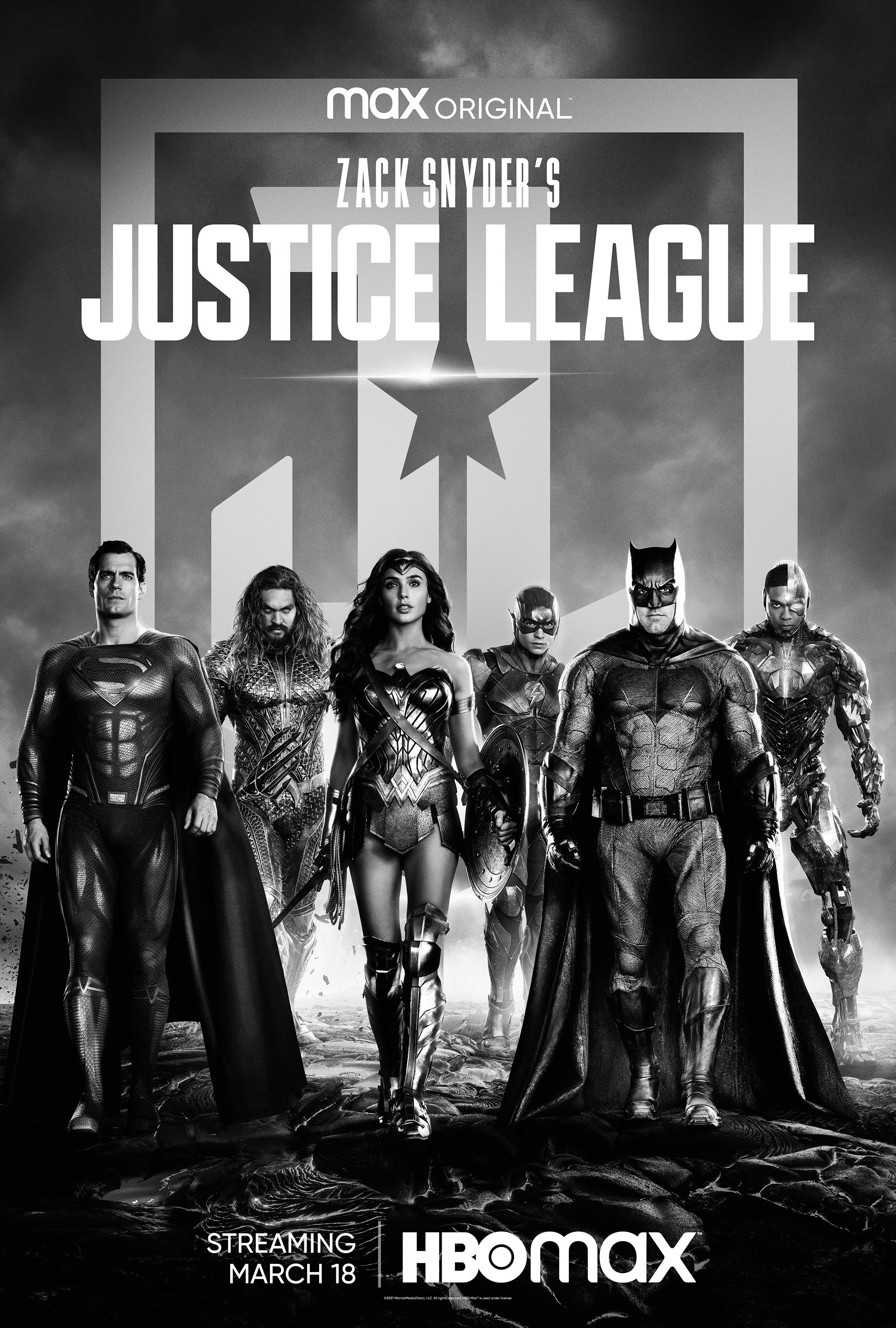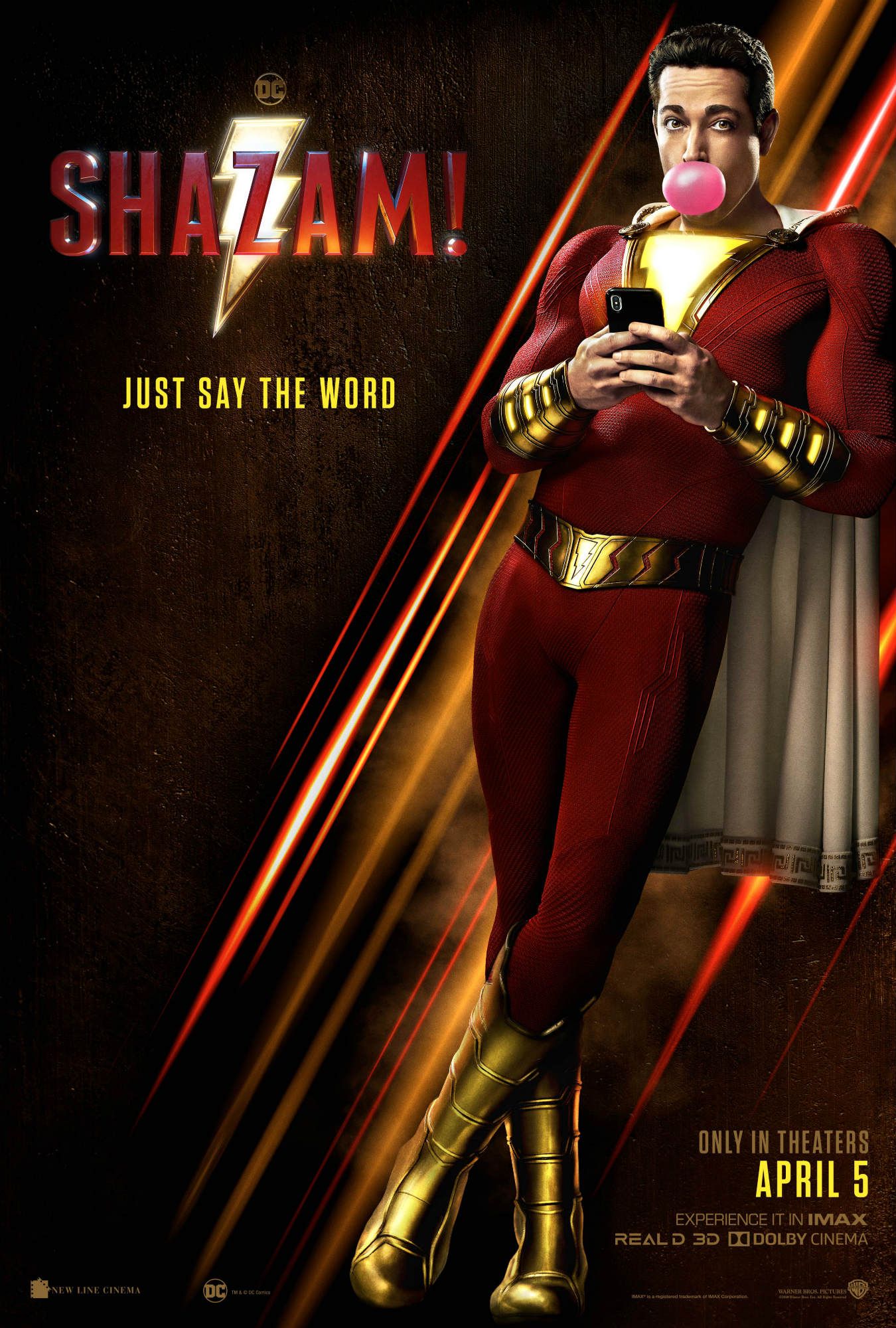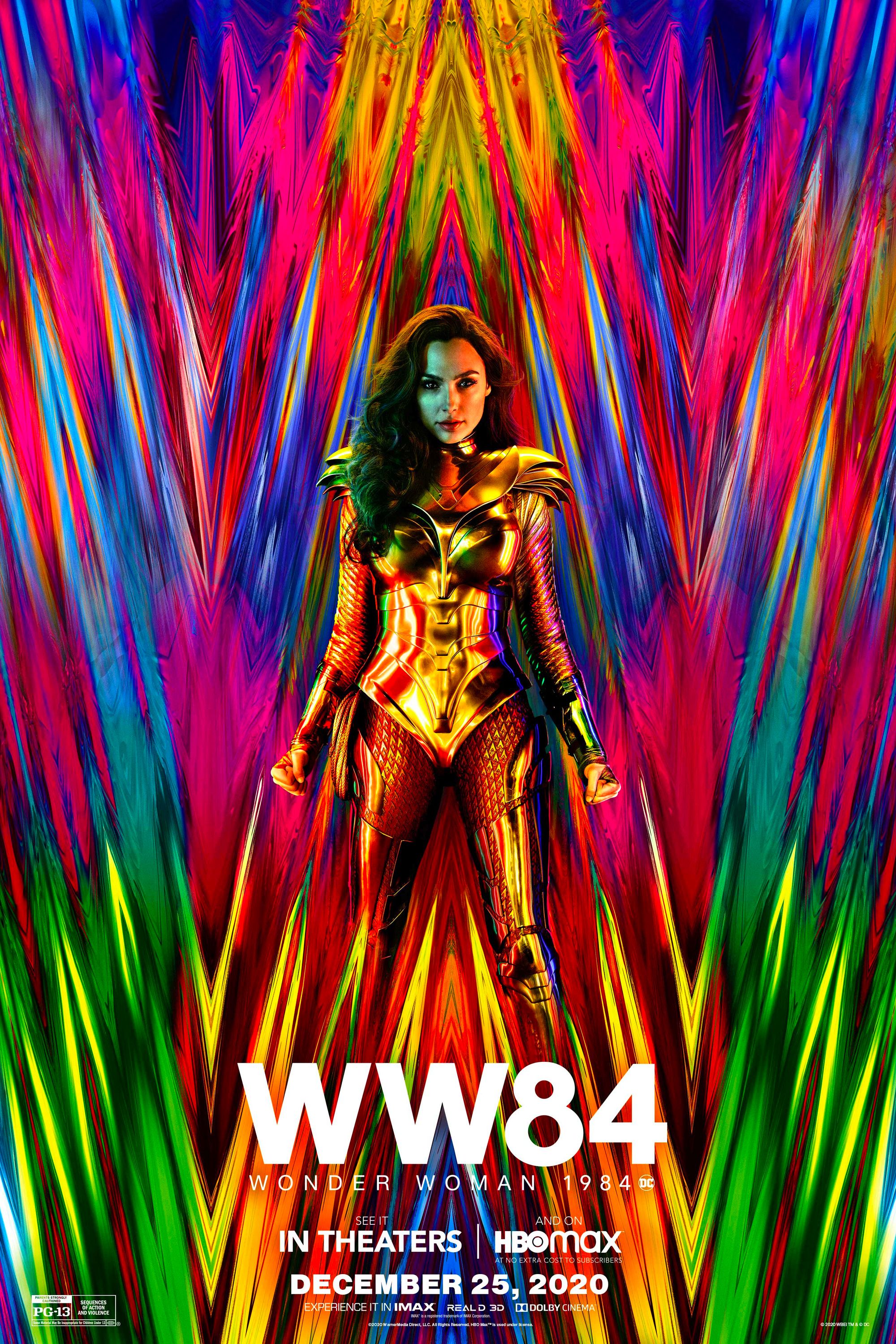Ever since Joss Whedon stepped behind the cameras to allow Zack Snyder to take a break from the production of Justice League to spend some personal time with his family, there have been questions about how Whedon's contributions would be recognized during the movie's end credits. While the Directors Guild of America is fairly straightforward in their guidelines, making it clear that the directorial would go to Snyder and Snyder alone, there were a number of other areas Whedon could pop up, and thanks to Warner Bros. Pictures' 2017 Fall Movie Preview press release, we now know that he'll be sharing the screenplay credit with Chris Terrio.Due to the number of rumors and behind the scenes changes during Justice League's production, there's been a lot of speculation about exactly the kind of final product we'd get. Some rumors claimed Joss Whedon was brought in to change the tone, others said he was changing the ending, and others said even more massive changes were underway. Whedon's reputation for quippy dialogue and the lighter tone of the two Avengers movies he directed for Marvel are a bit of a deviation from what Warner Bros. had been doing with the DC Extended Universe, and the abnormal duration of these reshoots only added fuel to those fires.
Related: Justice League Reshoots: What Was (& Wasn't) Changed
While a many of the individual rumors don't hold up, the sheer abundance of them understandably has many people feeling unclear about the true behind the scenes situation with Justice League, and Joss Whedon's writing credit is now being taken by some fans and members of the media as proof of some of the largest changes Whedon is rumored to be making. On any other film this might not get so much attention, but the polarizing reception Zack Snyder's previous DCEU films experienced means many people are closely watching Justice League, treating it as a sort of barometer for what can be expected from future DCEU films.
Unfortunately, the set of standards employed by the Writer's Guild of America aren't always quite as clear as those implemented by the Directors Guild of America (the two unions are responsible for deciding how creative talent is credited in movies - among many other things), but the guidelines they use to govern movie credits can still give us some insight about Whedon's true level of involvement and what it means for Justice League.
How is Writing Credit Determined?
The distribution of writing credits for Hollywood might be one of the more complex (and occasionally dramatic) parts of movie making, but thanks to some WGA guidelines and a few historical examples, we can at least get a rough idea of the process behind determining writer credit, which is a big deal since writing credit determines whether or not a writer makes residuals from a movie's profit instead of simply receiving the fixed pay they're contracted for. Prestige is obviously also a factor.
If nobody objects to their credit, then it doesn't really matter how they're listed. This can be seen most prominently with script doctors, who are often brought in behind the scenes to punch-up dialogue or rewrite a story while allowing the original writer to maintain the credit. Whether this is done out of the goodness of their heart, to repay a favor, or in exchange for an under the table deal isn't typically specified, but it happens all the time.
Related: Did WB Hire Joss Whedon to Lighten Justice League's Tone?
If a writer thinks they deserve credit when they didn't get it or don't want to share credit with another writer, then the WGA takes the case into arbitration where they review all contributions and dole out credit based on their findings. According to the Writers Guild of America Screen Credits Manual, a writer needs to contribute 50% to an original screenplay or 33% to an adapted screenplay in order to get credit.
Unfortunately, establishing whether or not a writer reaches that threshold isn't so simple as comparing word count or line count to determine which writers contribute which percent, though. Each writer's contributions are weighted based on several standards including "dramatic construction, original and different scenes, characterization or character relationships, and dialogue." The weighting of each category, however, is not known and it seems to be determined on a case by case basis.
For example, Joss Whedon himself is actually a famous case of this. Graham Yost, the credited writer for Speed, once told The Post Star "Joss Whedon wrote 98.9 percent of the dialogue" for the movie, but Whedon's name appears nowhere in the credits, even though dialogue is one of the factors the WGA considers in arbitration. Whedon would later elaborate on this in an interview with The Huffington Post, clarifying why the WGA ruled the way they did:
"It has to do with WGA bylaws. You can come in and rewrite all of the dialogue, and still not get credit. They didn't think I made big enough changes to the plot. I actually did a lot of overhaul, but much of it was to a later draft, so it went back to what Graham originally had."
The WGA hasn't only been known to remove writers that made significant contributions but also to add credits for writers who had minimal impact on the finished product. For example, when Colin Trevorrow directed Jurassic World, he threw out a script originally written by Rick Jaffa & Amanda Silver and rewrote it from scratch with his writing partner, Derek Connolly. When Jaffa & Silver protested their removal, the WGA reviewed the case and must have concluded that Trevorrow & Connolly didn't differ significantly enough from the original draft, because the ultimate credits for the movie were: Screenplay by Rick Jaffa & Amanda Silver and Colin Trevorrow & Derek Connolly, story by Rick Jaffa & Amanda Silver, based on characters created by Michael Crichton. So even though Trevorrow & Connolly did 100% of the work, certain characters, themes, and plot elements were deemed similar enough that they might as well have come from Jaffa & Silver's script, meaning they still deserved credit.
What Does This Tell Us About Whedon's Contribution?
Since it was first reported that Chris Terrio would share a screenplay credit with Whedon, many people have referenced the WGA credits manual and reported on the 50% contribution or 33% contribution cited there. First off, the 50% contribution refers only to original screenplays, so it has no place in this discussion and should be ignored. As for the 33% figure, that could be relevant provided Justice League went into arbitration, in which case all bets are off as seen in in the last section.
So the big question revolves around Chris Terrio. For him to agree to share a screenplay credit with Joss Whedon means he's giving up both a portion of his residuals and sharing the prestige of being the only writer credited for the screenplay. He's already sharing a story credit with Zack Snyder, so the impact of splitting screenplay credit with Whedon is minimized (it's not going to take half of his total residuals), but it would still mean giving away a portion of his own compensation regardless. It's possible WB made a deal to renegotiate Terrio's contract to give him a larger fixed amount up front, enticing him to allow Whedon to have credit without arbitration, but that's entirely unknowable. However, with the nature of leaks surrounding Justice League, the fact that there have been no reports of arbitration over the writing credits could be enough to suggest there were none, in which case Whedon's credit says very little (outside of what we already know) about his true contribution to the script.
Related: Report: Justice League Reshoots Are Still Following Snyder's Plan
If the case did go into arbitration, then we can look back to some of the information we already know to get an idea of how it corroborates Whedon getting to that 33% mark. Again, the 33%, as seen by the WGA, isn't 33% of lines, 33% of the scenes, or 33% of runtime, but a weighted 33%, meaning even just one scene - if it's seen as the lynchpin of the movie - could be enough to earn him that spot.
As we already know, Zack Snyder was dissatisfied with an early screening of Justice League. This early cut was actually described by some as "unwatchable," but since the screening occurred shortly after the end of shooting and would have incomplete music, effects, and most other post production polishes, it's not clear exactly how "bad" it was, but Snyder was dissatisfied enough that he determined it needed several new scenes added, mostly dialogue and connective tissue involving the League. He's confessed in the past that he doesn't like to write, which is likely why he brought Whedon in to write the scenes, but that role obviously grew to include directing them after Snyder's family tragedy.
The most recent report about Justice League revealed that most of the time spent in post production, which has seen a lot of downtime due to complicated schedules, has been spent shooting these new scenes - not reshooting existing scenes, and this is something that Whedon's writing credit seems to corroborate.
Going back to the WGA considerations during arbitration (if that's what happened), they give special weight to "dramatic construction, original and different scenes, characterization or character relationships, and dialogue." Fortunately for Whedon, every single one of those items touch on the type of scenes he's reported to have been brought in to construct. As seen with Speed, simply rewriting all the existing dialogue for reshoots isn't enough to garner him a credit, so the fact that his scenes are new scenes focusing on dialogue to improve the relationships between the members of the Justice League, then his credit is right in line with everything we already know about his involvement.
UPDATE: According to Mark Hughes at Superhero News, the total number of pages written by Joss Whedon is close to 24. Mark is quick to point out, as we already mentioned above, that in the eyes of the WGA, not all pages, words, or lines are created equal, so Whedon's participation isn't calculated purely as a percentage of the total pages he contributed. Having said that, it's not known how many pages the total script is, but the rule of thumb is that the average page of a screenplay is about one minute of screen time, so, considering Whedon was directing the parts of the movie he wrote (or rewrote), that means he could be responsible for writing and directing between 20-30 minutes of the movie as a rough estimate.
So, whether the significance of his participation was evident enough that Terrio agreed to share the credit with Whedon and Snyder or the WGA had to step in through arbitration to split the screenwriting credit up, but either way, Whedon's new scenes are deemed impactful enough on the overall movie to merit him a writing credit. The good news here is that this likely means his involvement also marks a big improvement in the final film, meaning it's that much less likely to see another critical meltdown.
At the end of the day, Whedon was never going to get a directing credit since the DGA doesn't allow the credit to be shared outside of pre-established duos and Zack Snyder shot 100% of principal photography, but his involvement in creating these news scenes is enough to make sure he gets the prestige he deserves for his involvement while also making sure he gets a percentage of earnings. While his participation in the whole ordeal isn't the most glamorous of Hollywood jobs, it was doubtless a blessing to the Snyder family and a boon to Warner Bros. and everyone else involved with the movie, preventing a bad situation from becoming even worse, so his reward is well earned.

